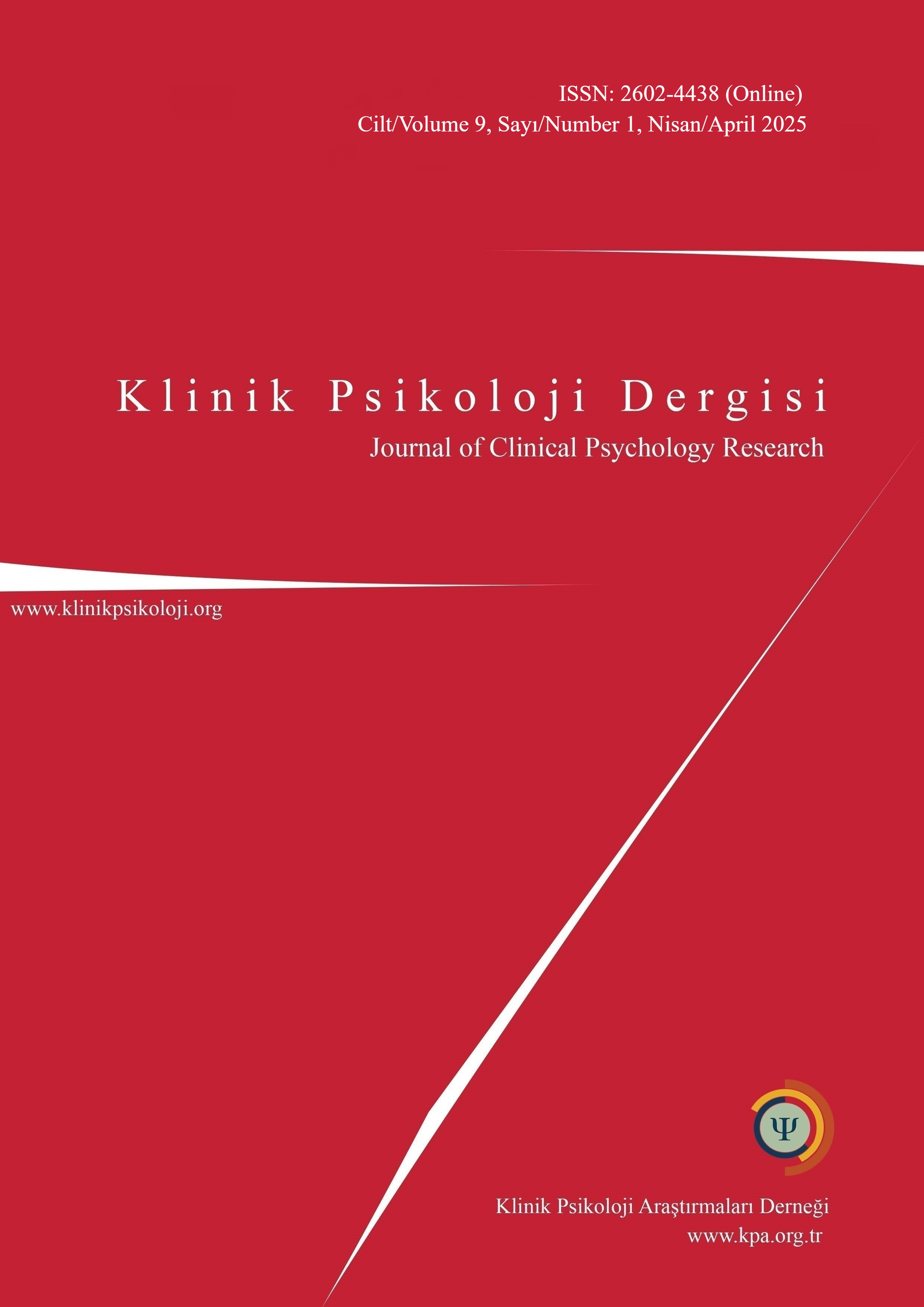Ortoreksiya Nervoza eğiliminde yeme tutumları, obsesif inançlar ve üstbilişlerin yordayıcı etkileri
The predictive effects of obsessive beliefs, metacognition, and eating attitudes on Orthorexia Nervosa tendency
Author(s): Miray Özcan, Ayşenur AktaşSubject(s): Social Sciences, Psychology, Clinical psychology
Published by: Klinik Psikoloji Araştırmaları Derneği
Keywords: orthorexia nervosa; obsessive beliefs; metacognition; eating attitudes; eating disorders;
Summary/Abstract: When the studies on the etiology of Orthorexia Nervosa (ON) have been examined in the literature, it is observed that there have been unreconciled results regarding its causality. For this reason, this study aims to examine the predictive effects of eating attitudes, obsessive beliefs, and metacognition variables on the ON tendency in understanding the etiology of ON. Since being a university student is considered a risk factor for developing negative eating behaviors and eating disorders in literature, and university students are also more exposed to popular culture about healthy eating, the sample of the study consisted of 437 university students (Mage = 22.7). In addition to the Demographic Information Form, the Orthorexia Nervosa Scale (ORTO-11), Obsessive Beliefs Questionnaire (OBQ-44), Eating Atti-tudes Test (EAT-26), and Metacognitions Questionnaire-30 (MCQ-30) were used in the study. Pearson product-moment correlation analysis, ANOVA, t-test, and simple linear regression analyses were applied to test the data. Considering that high scores on the ORTO-11, which measures ON tendency, indicate low ON tendency, the results of the analysis showed that there were significant negative relationships between the independent variables of obsessive beliefs, eating attitudes, and metacognition and ON tendency. Thus, the predictive effects of Obsessive Beliefs Questionnaire total score and its sub-dimensions (responsibility/threat estimation, perfectionism/certainty), Eating Attitudes Test total score and its sub-dimensions (eating preoccupation, restriction), Metacognitions Questionnaire total score and its sub-dimensions (positive beliefs, cognitive self-consciousness, need to control thoughts) on ON tendency were observed. The results obtained from the study were com-pared and discussed with the findings of similar studies in literature, and it was aimed at shedding light on future research on the etiology of ON tendency.
Journal: Klinik Psikoloji Dergisi
- Issue Year: 9/2025
- Issue No: 1
- Page Range: 1-13
- Page Count: 13
- Language: Turkish

